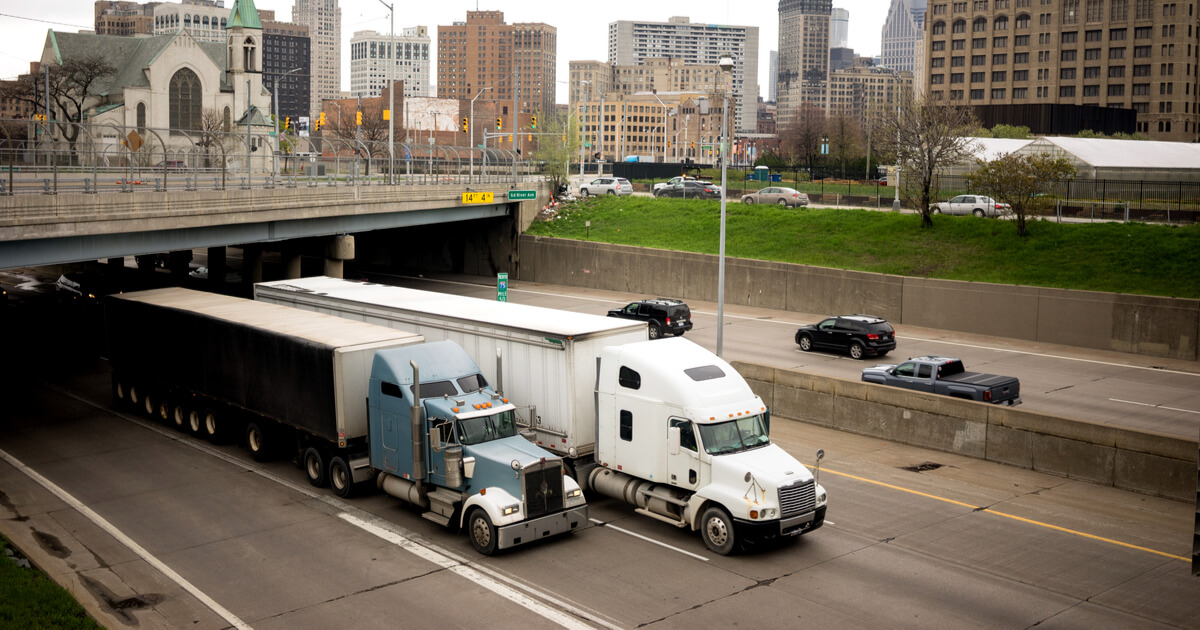
Despite a federal judge slapping down Rhode Island’s truck-only tax because it violates the U.S. Constitution, neighboring Connecticut plans to start the New Year by reaching into freight haulers’ pockets.
As of Jan. 1, 2023, commercial motor vehicles ranging from Class 8 to 13 will be hit with a per-mile highway fee of 2.5 cents for vehicles weighing 26,000 to 28,000 pounds. Tractor-trailer operators delivering goods and materials to Connecticut and other New England states can anticipate doling out 17.5 cents per mile for rigs weighing 80,000 pounds.
“We can’t absorb it. This is going to have to be passed down to our customers,” John Pruchnicki of Coastal Carriers of CT reportedly said.
Connecticut has no intention of erecting an electronic tolling system like neighboring Rhode Island. Owner-operators and fleet carriers are expected to register for a Highway Use Fee Permit at the state’s Department of Revenue Services before New Year’s Day. Truckers are tasked with calculating their miles and multiplying the number against the applicable per-mile charge.
Once they finish spending their off-duty time adding up how much they owe, freight transportation outfits are required to make online payments before the last day of the following month. Late payments, incomplete filings, or math errors result in a 10 percent penalty with a $50 minimum. Willful violations are reportedly punishable with fines of $1,000.
Conservative estimates peg the money pilfered from hardworking truckers at $45 million during the first year and upwards of $90 million in year two. Rhode Island siphoned off more than $100 million in less than four years and was expected to take $40 million annually going forward. Rhode Island Gov. Dan McKee is appealing the ruling that ended the scheme.
Connecticut Gov. Ned Lamont and pro-highway-tax lawmakers have indicated that civil lawsuits would be heard by a different federal district court. Some have gone on the record indicating judges may be more amenable to truck-only taxes in their region. But what seems counterintuitive is that Connecticut doesn’t actually need the additional revenue. The state enjoys a $4.3 billion budgetary surplus for the fiscal year 2021-2022 and has been approved for funding through the $1.2 trillion infrastructure spending package.
“This tax is solely paid by the trucking industry. Policymakers passed this measure in 2021 prior to knowing about our burgeoning state surplus and the hundreds of millions of federal infrastructure dollars that are coming to the state. New tax dollars to support infrastructure improvements are simply not needed,” the Motor Transport Association of Connecticut reportedly stated.
After broadly raising taxes to offset deficits, the state was able to afford shopping tax holidays and vacate the passenger vehicle gasoline tax. While politicians seemingly placated voters with less expensive gas heading into the elections, the diesel tax escalated to 49.2 cents per gallon. That ranks Connecticut among the states with the highest truck diesel tax. Come Jan. 1, the state will also be the only one specifically taxing the industry that delivers 72 percent of all goods and materials.
The truck-only highway use tax will likely cut into the profits of some independent truckers. But the overwhelming cost will get passed along to consumers who are already struggling with inflation that topped 9 percent in June and continues to hover around 8 percent.
“Whether it be the diesel tax you’re hitting us with, or the (highway usage fee), that gets passed on to consumers,” Motor Transport Association of Connecticut President John Blair reportedly said.
Sources: providencejournal.com, nbcconnecticut.com











If I was still driving, I’d refuse to haul to CT. Or even transit the state. Enough drivers do that and not o ly will CT get hungry and cold, but other states also. Truckers have power, they just need to use it.
Then CT should be forced to refund the federal dollars the state gets for Highway funding. The fee in Rhode Island was a toll . Some other states have ton mile taxes as well. The other states should start a fee on any CT truck running on their highways to prove a point.
That’s not off duty time.
That’s on (duty not driving) time line 4.
That’s time we are not getting paid for.
As a company owner with a fleet I will just REFUSE to go to Connecticut. The end. And I am not intending on registering on the system. End of story